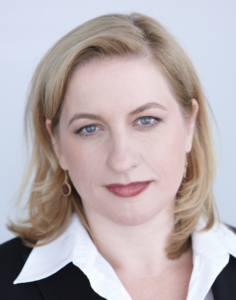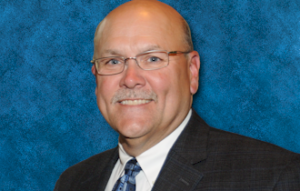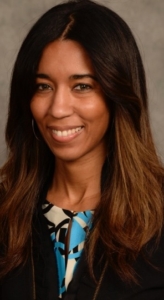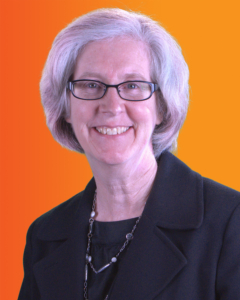 Don’t opt out before you ever get a chance to start your career.
Don’t opt out before you ever get a chance to start your career.
That’s the advice from Esther Jansen, a Shearman & Sterling partner in Frankfurt who took opportunities as they were presented to grow her career.
Today a well-known and highly-regarded lawyer who advises on German and cross-border finance transactions, Jansen began her legal career the way most professionals begin theirs: with a general direction but lacking any real focus. In fact, thinking back to her time as a law student at University of Heidelberg, Jansen admits she had no specific career path in mind; there were no lawyers in her family but she had always been interested in the field and knew that a general plan of study could open doors to various avenues.
Her career path started rather randomly with her oral examination at the conclusion of her studies. That is when a corporate law professor, from whom she had never even taken a class, complimented her performance and offered her a job.
“I was able to travel and make a lot of connections, and I realized that this area of law was something I wanted to pursue,”
Thus she embarked on a career in corporate law. Jansen recalls finding the field “inspiring” due to a wide variety of projects that encompassed different areas of law, including international projects with professors from other universities. “I was able to travel and make a lot of connections, and I realized that this area of law was something I wanted to pursue,” Jansen says.
For three years she supported the professor on research projects and student training. She was then offered a position at a law firm through another professor with whom she had interfaced while working at the university.
For three years, Jansen concentrated on venture capital, corporate and M&A, and then new doors opened as her German firm merged with one in New York. She was offered the chance to work in New York to get a different perspective and meet people with whom she had worked from Germany.
“I was astounded at how different the environment was,” she says. “German law firms had hierarchy but nowhere near that of a US firm in New York. One day I went to a partner’s office, only to run into a mid-level associate who asked me what I was doing. I quickly found out that there you don’t just go to the partner.”
Soon after returning to Germany she left – along with the partner with whom she had been working — and began her career with Shearman & Sterling in 2001.
“Becoming partner was a defining moment for me because I’m so proud to be part of this inspiring environment,”
A Rewarding, Fascinating Change
Jansen found Shearman & Sterling to be a great fit right from the start, with a team spirit, lots of young partners and a supportive environment. Jansen became a partner in 2005 and had the opportunity to work with many different partners during her time as an associate, which she credits for her rapid development. “The more personalities you work with, the more you can choose the patterns that work best for you to develop your own professional personality,” she says.
“Becoming partner was a defining moment for me because I’m so proud to be part of this inspiring environment,” she adds. “The ability to transition from one area of law to another, and work with so many smart people and become part of the market and a community on a bigger scale, has really been an achievement for me.”
Jansen finds her work challenging and fascinating because of its ever-changing structure. Over the past year she has not only found a rewarding opportunity to retain new relationships with private equity houses in the higher and midmarket segments, but also worked with banks and corporates on financing transactions, insolvency issues and high yield bonds.
Making a Career Choice for the Right Stage of Your Life
Jansen believes that it is also a woman’s responsibility to take charge of her own career. “I have never encountered a barrier from clients or the firm, nor experienced any pushback from anyone in or outside of the firm,” she says.
It’s still an issue she understands well: the year before her partnership process began she became pregnant and endured the ensuing questions from women about whether she could balance her work and family. But there was no issue with the firm; being a mother did not impair her partnership opportunity. She stayed home for five months and there was no delay to her partnership track when she returned.
However, this perceived barrier presents a problem for hiring and retaining women. Jansen says that when she started at Shearman & Sterling, about 50 percent of her fellow associates were women but, as is the case throughout the legal industry, there was a drop-off by the time associates become ready for the partnership.
Jansen encourages young woman to start networking early, both internally and externally
Over and over she hears from young women that their main obstacle is whether this is the right career for the next 20 years.
“Maybe it is, maybe it’s not, but you don’t have to overthink it. Take a small step and see if it’s right for you,” she says, adding that women often don’t take the big leap and therefore get stuck in a less ambitious job before they even start. “Gaining experience at a firm like Shearman & Sterling means that all the doors are open. Even when women leave, they have a strong foundation to launch the next phase of their career that they wouldn’t have had if they hadn’t pushed themselves.”
Women Helping Women
Although Shearman & Sterling is known for its comprehensive women’s networking groups, German culture as a whole isn’t as developed in gender diversity initiatives. Jansen says the German market is starting to adapt, and the firm has introduced its Women’s Initiative for Success, Excellence and Retention (WISER) inclusion network locally. The firm has also expanded its annual global partner meeting an extra day for anyone, male or female, who wants to participate in Women’s Initiative programming. That programming typically includes female speakers and networking with other female partners to mine connections that could help each other.
In addition, the women partners have taken the initiative to become part of smaller personal circles of four to five women who report to each other once or twice a month, offering encouragement and a high degree of accountability. “Since it’s a more intimate group, you’ll be missed if you’re not part of it,” she says.
Jansen encourages young woman to start networking early, both internally and externally, to get to know the peers they’ll grow their careers with. In fact, she says that one of the foundations of Shearman & Sterling’s Women’s Initiative is that, within the business and legal communities, women are increasingly making the legal buy decisions, in their role as general counsel or assistant general counsel, so it’s important to understand their contacts’ business and what they are looking for and to foster relationships with senior women in those organizations.
Through it all, and with a very challenging career, Jansen is aware that she has been fortunate to have the support from her husband and her extended family. With two kids, ages 11 and 8, Jansen says, “On the weekends, family is my hobby.”






